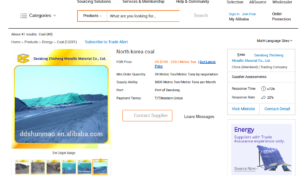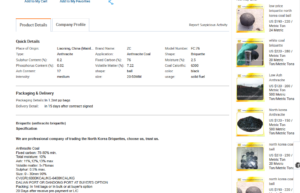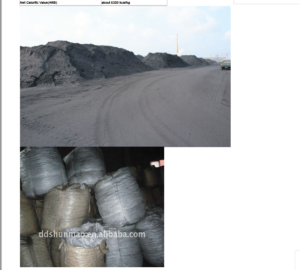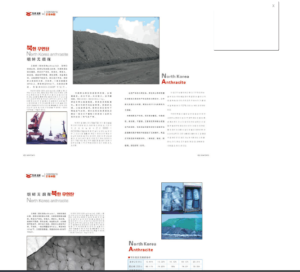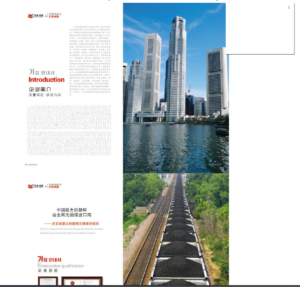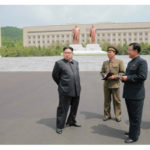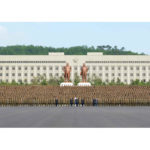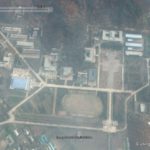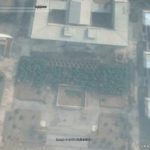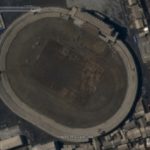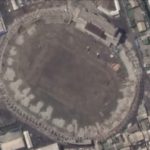Here is the statement from the Treasury Department:
Treasury Takes Actions To Further Restrict North Korea’s Access to The U.S. Financial System
6/1/2016
Action Responds to the Threat that North Korea Poses to the Global Financial System; the United States Calls on International Partners to Similarly Takes Steps toward Severing Banking Relationships with the Dangerous Regime
WASHINGTON – Today, the U.S. Department of the Treasury announced a Notice of Finding that the Democratic People’s Republic of Korea (North Korea) is a jurisdiction of “primary money laundering concern” under Section 311 of the USA PATRIOT Act. Treasury, through its Financial Crimes Enforcement Network (FinCEN), also released a notice of proposed rulemaking (NPRM) recommending a special measure to further isolate North Korea from the international financial system by prohibiting covered U.S. financial institutions from opening or maintaining correspondent accounts with North Korean financial institutions, and prohibiting the use of U.S. correspondent accounts to process transactions for North Korean financial institutions.
Section 311 gives the Secretary of the Treasury the authority to identify a foreign jurisdiction to be a primary money laundering concern. Once identified, the Secretary can require U.S. financial institutions to take appropriate countermeasures. The special measure proposed in today’s NPRM would impose the most significant measure available to the Secretary under Section 311.
“The United States, the UN Security Council, and our partners worldwide remain clear-eyed about the significant threat that North Korea poses to the global financial system. The regime is notoriously deceitful in its financial transactions in order to continue its illicit weapons programs and other destabilizing activities,” said Adam J. Szubin, Acting Under Secretary for Terrorism and Financial Intelligence. “Today’s action is a further step toward severing banking relationships with North Korea and we expect all governments and financial authorities to do likewise pursuant to the new UN Security Council Resolution. It is essential that we all take action to prevent the regime from abusing financial institutions around the world – through their own accounts or other means.”
Reasons for This 311 Determination
Treasury is taking this action consistent with the North Korea Sanctions and Policy Enhancement Act, enacted on February 18, 2016, which requires Treasury to determine within 180 days whether reasonable grounds exist for concluding that North Korea is a jurisdiction of primary money laundering concern, and if so, to propose one or more special measures. In addition, the United Nations Security Council adopted Resolution 2270 on March 2, 2016, which in part requires UN Member States to sever correspondent banking relationships with North Korean financial institutions within 90 days of the adoption of the resolution.
North Korea is proposed for action under Section 311 because (1) North Korea uses state-controlled financial institutions and front companies to conduct international financial transactions that support the proliferation and development of WMD and ballistic missiles; (2) North Korea is subject to little or no bank supervision anti-money laundering or combating the financing of terrorism (“AML/CFT”) controls; (3) North Korea has no diplomatic relationship, and thus no mutual legal assistance treaty, with the United States and does not cooperate with U.S. law enforcement and regulatory officials in obtaining information about transactions originating in or routed through or to North Korea; and (4) North Korea relies on the illicit and corrupt activity of high-level officials to support its government.
Impact of the 311 Notice of Finding and the NPRM Special Measure
While current U.S. law already generally prohibits U.S. financial institutions from engaging in both direct and indirect transactions with North Korean financial institutions, this NPRM, if finalized, would require U.S. financial institutions to implement additional due diligence measures in order to prevent North Korean banking institutions from gaining improper indirect access to U.S. correspondent accounts. While North Korea’s financial institutions do not maintain correspondent accounts with U.S. financial institutions, North Korean financial institutions frequently conduct transactions on behalf of the North Korean government and state-controlled corporations. The NPRM, if finalized, would prohibit the use of third-country banks’ U.S. correspondent accounts to process transactions for North Korean financial institutions.
Italics added for emphasis.
The “Notice of Finding” is here, and is also worth reading.
According to the Wall Street Journal:
Treasury Department officials said they are moving to ban non-U.S. banks and entities from processing dollar transactions on behalf of North Korea, an arrangement known as a U-turn, in a move to block its international trade.
…
China is by far Pyongyang’s largest trading partner, and Chinese firms could be caught in the crosshairs, according to current and former U.S. officials.
…
Zhu Haiquan, the spokesman for China’s embassy in Washington, repeated Beijing’s warnings against what it considers “unilateral sanctions taken by any country.”
He added that “we should avoid any move that may further aggravate tensions” on the Korean peninsula, and said “the unilateral sanctions must not affect and harm the legitimate rights and interests of China.”
…
U.S. officials were pleased that China agreed in March to support the new U.N. sanctions, which could significantly impair North Korea’s ability to generate hard currency and ship its exports.
Still, U.S. officials have voiced skepticism that Beijing would significantly punish Pyongyang, a longtime ally. China has rebuked North Korea in the past for its nuclear and missile tests, only to increase investment and trade with the country.
The issue is likely to be among the topics discussed when Messrs. Kerry and Lew meet top Chinese officials in Beijing for the Strategic and Economic Dialogue, a series of annual bilateral meetings.
According to the New York Times:
As a practical matter, that would largely affect Chinese banks, which facilitate North Korea’s financial transactions with Beijing, its largest trading partner. It could also affect some institutions in the nominally autonomous Chinese regions of Macau and Hong Kong, as well as in Singapore, where Pyongyang has often gone to hide the true nature of its banking activities, and to pay for missiles, nuclear fuel and the huge infrastructure it has built around those programs.
…
It is hard to assess how much the action will hurt North Korea. Such sanctions against financial institutions doing business with Iran proved effective because Tehran had billions of dollars in monthly oil and other energy exports that could be choked off; North Korea has none. Oftentimes Pyongyang deals in cash. Until a few years ago it was one of the largest counterfeiters of $100 bills. But that once-lucrative fraud was largely cut off by the redesign of the $100 bill.
…
Banks in the United States are already prohibited from doing business with financial institutions in North Korea. But the recommended rules would require them to perform additional due diligence to ensure they are not inadvertently transacting with North Korean financial institutions or the Pyongyang government through shell companies or other fictitious entities.
Notice of the new rules has been published by the Federal Register. Feel free to comment if you like.
Josh also writes a walk-through of how this works.
Here is information from Choson Exchange.
Troy Stangarone writes about the sanctions for KEI.
The UK also strengthened financial sanctions against the DPRK.
